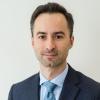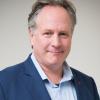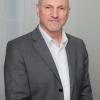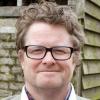Responding to the news item in Total Health - Cochrane review supports AA treatment, Dr Robert Lefever provides his own view and expresses his frustration with colleagues in the medical community. He says that it is not good enough for doctors despite the evidence, to dismiss treatment programs that work on the basis that they may have a spiritual or "cult" undertone, or worse, mention the word "God".
That’s the science. Now for the flak!
Letter from Dr Robert Lefever.
A recent article in The New York Times says that a Twelve‐Step Facilitation (AA/TSF) treatment program (as suggested by Alcoholics Anonymous) is superior to other more 'mainstream' treatments in terms of maintained abstinence from alcohol and other outcome markers.
That’s the science. Now for the flak!
There is no way that the massed bands of intellectuals supporting Cognitive Behaviour Therapy (CBT), Rational Emotive Behaviour Therapy (REBT), Cognitive Dialectical Therapy (CDT) and SMART Recovery will take that lying down. They will claim that the research must be inadequate, the figures inaccurate, the researchers biased and that their own treatment programmes must be used alongside AA’s Twelve Steps or, preferably, instead of them.
Ever since the first findings of Project Match (that studied which types of alcoholics respond best to which forms of treatment) were reported in 1996, the academics have joined forces to battle against what they see as The God Squad. AA is deemed to be a religious cult.
A review of the Big Book of AA in The Journal of the American Medical Association on 10th April 1939 said, "The one valid thing in the book is the recognition of the seriousness of addiction to alcohol. Other than this, the book has no scientific merit of interest."
The review in the American Journal of Nervous Mental Disorders in September 1940 said:
"This Big Book, ie big in words, is a rambling sort of camp-meeting confession of experience, told in the form of biographies of various alcoholics who had been to a certain institution and have provisionally recovered, chiefly under the influence of the “big brothers get together” spirit. Of the meaning of alcoholism there is hardly a word."
In six years at Cambridge University and The Middlesex Hospital, I was taught about the medical consequences of alcoholism but nothing about its origins in the individual sufferer. Medical students were generally given no teaching at all in psychology. We were trained to prescribe, prescribe and prescribe.
The fault, in my view, does not lie with the pharmaceutical industry, or with doctors themselves, but with the General Medical Council who have a responsibility to monitor the curricula of medical schools.
I learned about the Twelve Step programme when I observed, as a working family doctor, that my drunken patients were not getting well whatever I did for them or encouraged them to do for themselves.
That’s when (at the suggestion of a patient) I first learned about the Twelve Steps. From that moment on I was determined to do something effective for this neglected - and often rejected - group of patients.
Subsequently one medical colleague told me I should focus my time and attention on ‘medical’ work. Another said that I was “letting the side down” by treating alcoholics, rather than telling them to stop drinking and stop being such trouble to everybody. Clearly, medical attitudes have changed very little, if at all, since the first reviewers of AA’s ‘Big Book’ had their dismissive say.
Will that change now? I doubt it.
Doctors generally don’t like being shown that non-medical approaches (other than osteopathy, acupuncture and treatment with ‘health foods’ and vitamins) can be effective.
‘The God bit’ is held against the Twelve Steps of AA, despite the underlined and italicised statement ‘as you understand’ after each mention of the word God.
I myself have no religious belief. My ‘Higher Power’ is the Twelve Step programme itself. It has worked for me for the last 35 years. I ‘pray’ (as a form of psychological reminder) for maintenance of behavioural changes that I have found helpful in keeping me married, earning my living and having the creative life of my dreams.
Will my personal experience influence other doctors (other than those who have addiction problems of their own)? In a word: no.
Will this new evidence influence them? In the same word: no.
Anyone wishing to respond to this news item can email info@totalhealth.co.uk or by clicking this contact link.






